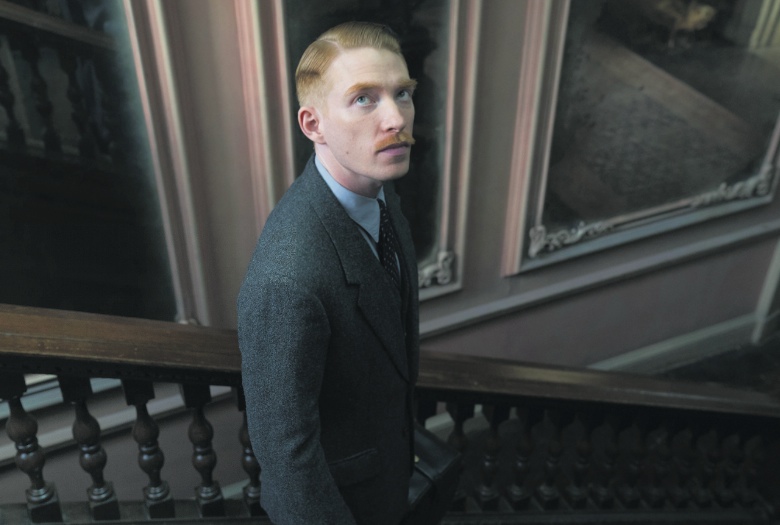The Little Stranger review: A spooky drama that has more interesting things to say about poverty than poltergeists

The opening shot of The Little Stranger is an absolute nail-biter: Dr Faraday, played by a stiff-lipped Domhnall Gleeson, is shaving in thrilling close up. Will he cut himself? He’s in a big gloomy room in front of an antique mirror, so he probably should cut himself, if only to blend in with the spooky atmosphere, but if he doesn’t then why are we watching him shave?
This brand of ultra low-key suspense ekes its way into every scene of this adaptation of Sarah Waters’ bestselling novel. While it bears all the hallmarks of a traditional ghost story – fantastically creepy house, a death in the family, a dog that barks at all the wrong times – it’s closer to a period drama and has far more interesting things to say about poverty than it does poltergeists.
The crumbling pile is owned by the Ayres, landlords of a large chunk of Warwickshire, who lose their most beloved daughter to a mysterious illness. Years later, the son of their former maid, now a doctor, returns to the mansion he was jealously enthralled by as a child. When strange things start happening to the ‘heirs’ of this fortune, the viewer is left to work out whether Faraday is picking them off, the family are losing their marbles, or the lost child is claiming her birthright from beyond the grave.
And there isn’t much to go on. The dialogue is functional and Gleeson gives little away as the repressed doctor. The rest of the talented cast – Will Poulter and Charlotte Rampling in particular – are terribly underused, though Ruth Wilson is terrific as long-suffering daughter Caroline. As a suspenseful thriller, it ticks a lot of boxes, but it’s sorely missing an element of surprise. The climax feels like an inevitability rather than a crescendo slowly built towards.
Though it wishes it were Hitchcock murdering du Maurier on a stormy moor, The Little Stranger feels more like The Others politely asking An Inspector Calls to tea.